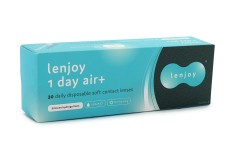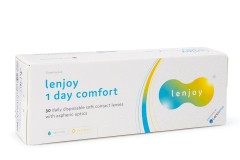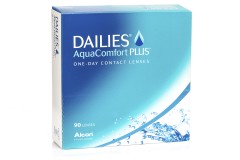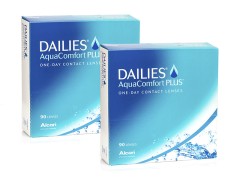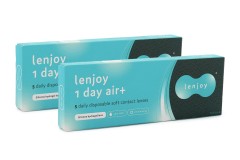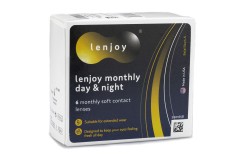Anti-reflective coating: What it is and what are its main benefits

As the name might suggest, anti-reflective coating is a specialised layer designed to increase the transmission of light through a system by reducing reflections. But how does it actually work and why is AR coating important in our everyday lives?
The optometrists at Lentiamo explain anti-reflective coating and how it can help many glasses wearers experience their best vision possible. Follow along to understand the technology behind this tiny yet powerful addition to your eyewear.
What is anti-reflective coating?
Anti-reflective coating is a specialised application designed to minimise reflections on surfaces like glasses, camera lenses, and other optical devices and systems. By reducing scattered light reflections, this coating allows more light to pass through the lens itself, enhancing clarity and improving the overall visual experience when looking at or through the lens.
Whether you're reading under bright lights or capturing a moment with your camera, the application of anti-reflective coating ensures that your experience is optimised for maximum visual comfort and precision.
How does anti-reflective coating work?
Anti-reflective coating works by sealing multiple microscopic layers of metallic oxides onto a lens. The particles in each layer interact with light waves in different ways, bending and manipulating light to minimise reflections and direct more light through a lens. Images viewed through lenses with AR coating can be seen clearly and sharply.
Did you know? Manufacturers use different formulas or variations in the layering process to create anti-reflective coatings. This results in very subtle colour differences in some lenses. When observed from certain angles, the coatings may reflect faint hues of blue, green, or purple.
Are anti-reflective and anti-glare coatings the same?
"Anti-reflective" and "anti-glare" are often used interchangeably but serve different purposes.
- Anti-reflective coating – AR coating reduces reflections on eyeglasses, camera lenses, and screens, promoting increased light transmission and enhanced overall clarity of visual perception.
- Anti-glare glasses – These can be more accurately described as polarisation in sunglasses. Polarised sunglasses filter out glare from bright or reflective surfaces like water or snow, contributing to improved visibility.
Benefits of anti-reflective coating

Anti-reflective lenses can make your vision clearer, enhance your appearance, and reduce eye strain, making them a popular choice for eyeglasses wearers. Below is a summary of the main benefits of AR coating:
Enhanced visual clarity
Anti-reflective lens coatings effectively minimise reflections on both the front and back surfaces of lenses, resulting in fewer visual disturbances. By preventing light from being reflected away from the lens, more light can pass through to reach the eye.
This enhances overall clarity for a wearer, resulting in a more comfortable experience and improved illumination of the light-sensitive cells on the retina. Consequently, ensuring better visual perception.
Reduced eye fatigue
Anti-reflective glasses minimise distracting reflections, allowing as much light as possible through the lens. This can enhance eye comfort and provide relief from symptoms of eyestrain and fatigue.
They optimise visibility in low-light conditions or dim environments, making anti-reflective glasses particularly advantageous during activities like nighttime driving.
Improved aesthetics
Anti-reflective coating ensures a distraction-free appearance in photographs, video calls, and in bright settings. They prevent flashes and other light sources from creating distracting reflections, contributing to an aesthetically pleasing and overall engaging look.
Looking for the right glasses?
Add anti-reflective coating to any glasses at no extra cost.
What are the disadvantages of anti-reflective coating?
Scratches and wear
Without proper care, the thin layers of anti-reflective coating on lenses can be prone to scratching and wear over time. This wear and tear not only diminishes visual clarity but can also make the lenses more susceptible to further damage.
Cleaning requirements
Fingerprints, body oils, and water can interfere with the anti-reflective properties by disrupting light reflections. This can curtail the effectiveness of the coating itself.
Did you know? With anti-reflective glasses, a reduction in reflections means that dirt and other debris on the lenses can become more visible. This is because light sources don't create distracting reflections on the lens itself. Regular maintenance ensures that the benefits of the glasses are consistently enjoyed throughout the lifespan of your eyewear.
Replacement
Importantly, once the anti-reflective coating is damaged, there is no effective way to repair it. This means that careful handling to maintain the coating's effectiveness over the lifespan of the eyewear is key.
Anti-reflective coating vs. blue light glasses

Anti-reflective coating and blue light blocking lenses are both solutions designed to enhance visual comfort, but they address different problems. While anti-reflective coating is beneficial in numerous lighting conditions, blue light glasses are tailored to reduce blue light specifically.
- Anti-reflective coating minimises reflections, improving clarity and reducing eye strain caused by bright lights and screens.
- A blue light filter targets the potential negative effects of prolonged exposure to blue light by filtering out a portion of the blue light emitted from screens and other light sources.
Depending on your individual needs, one or a combination of both solutions can be considered.
What lens coatings are available at Lentiamo?
-
Anti-reflective coating (comes standard)
-
Superhydrophobic with anti-reflective coating
-
Computer "Blue Cut" with hydrophobic and anti-reflective coatings
-
Sunglasses tints
Caring for glasses with anti-reflective lenses
It's a common misconception that glasses with an AR coating get dirtier faster than standard lenses. It only seems this way because anti-reflective coatings reduce reflections of light, making grease and grime appear more prominent on the lens. So while AR-coated lenses don't get dirtier faster, you might have to wash them more.
Learning how to clean glasses properly can ensure your lenses stay clear. Regularly clean your lenses with a gentle soap or cleaning solution made for glasses lenses. Use clean microfiber cloths to remove smudges and fingerprints. And always avoid using abrasive materials or harsh chemicals that could damage the anti-reflective coating.
Pro tip: Not all glasses sprays are compatible with anti-reflective coating. Some sprays can even damage it! Double-check the label on your lens cleaners before spraying your specs.
Frequently asked questions
Is anti-reflective coating worth it?
"Yes, anti-reflective coating is always worth it for eyeglasses," according to Lentiamo optometrist Petra Průchová, Ing. "AR coating reduces reflections and improves clarity, which enhances overall visual comfort and helps you see better."
Because high index lenses (thinner lenses for higher prescription powers) have high reflections, AR coatings are typically recommended for these wearers.
Can I add anti-reflective coating to my existing glasses?
No. Unfortunately, it's not possible to add anti-reflective coating to existing glasses lenses when the lenses are already in the frames. The lens supplier won't do it unless the lenses are purchased directly from them and are not yet placed in your chosen frames.
Do I need anti-reflective coating on my glasses?
The need for anti-reflective coatings on your glasses depends on your needs and preferences. The coating reduces glare, enhances clarity, and offers a natural look. While providing benefits, they may require more cleaning and add an additional cost to your eyewear. Consult your eye care professional to determine if it suits your needs and budget.
Closing thoughts from Lentiamo
In conclusion, an anti-reflective coating offers substantial benefits, enhancing clarity, comfort, and aesthetics in various visual environments.
At Lentiamo, AR coating is standard and included at no cost. Find your favourite glasses or read more about finding your perfect pair today.
Read more
- Glasses guide: From cleaning to finding your perfect pair
- How to find your glasses size
- The best sunglasses for driving
- Glasses lenses and materials


